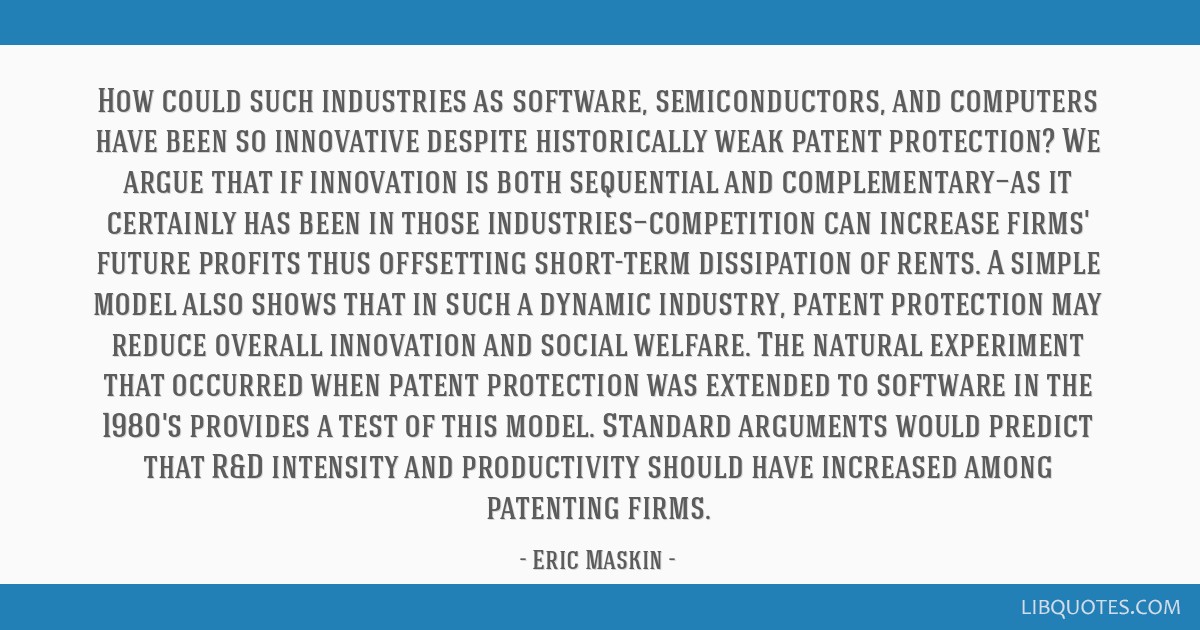How could such industries as software, semiconductors, and computers have been so innovative despite historically weak patent protection? We argue that if innovation is both sequential and complementary—as it certainly has been in those industries—competition can increase firms' future profits thus offsetting short-term dissipation of rents. A simple model also shows that in such a dynamic industry, patent protection may reduce overall innovation and social welfare. The natural experiment that occurred when patent protection was extended to software in the 1980's provides a test of this model. Standard arguments would predict that R&D intensity and productivity should have increased among patenting firms.
Bessen, James, and Eric Maskin. "Sequential innovation, patents, and imitation." The RAND Journal of Economics, 40.4 (2009): p. 611.





















